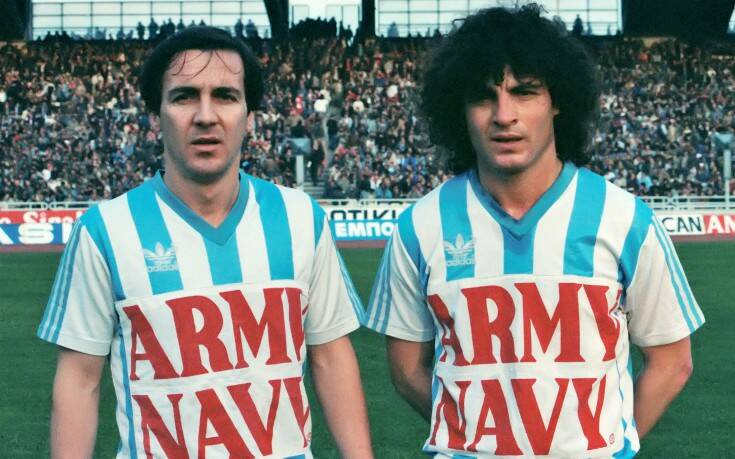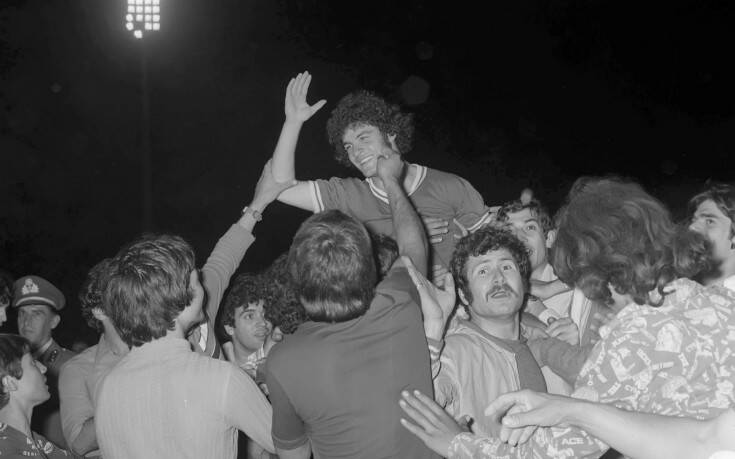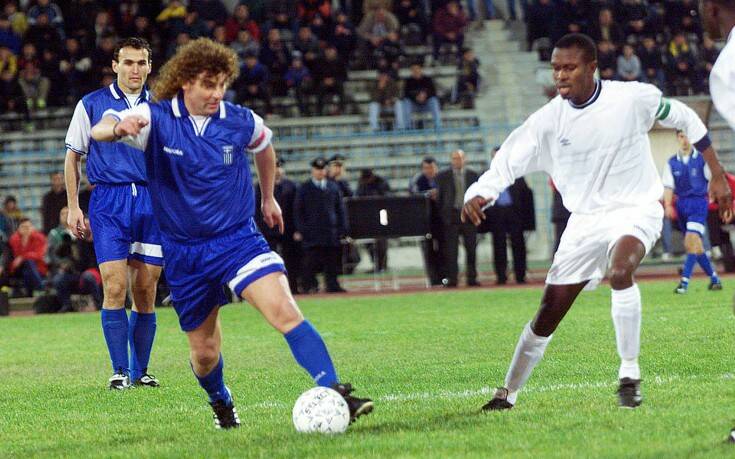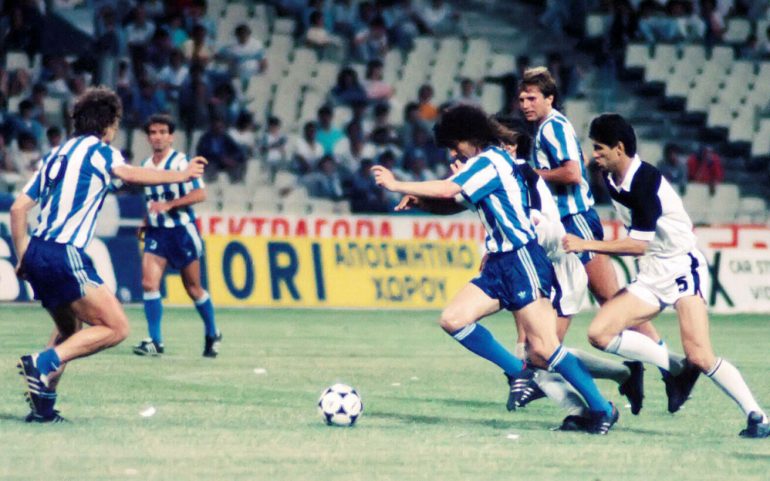Foreigners consider him a miniature of Diego Maradona, the Greeks saw him do crazy things with the ball, but he never played at the level he deserved.
In the 80's the planet earth misunderstood seeing a football player in action. His name, Diego Armando Maradona and what he did did not escape anyone's attention. The Argentine was a player who did with the ball on his feet things that no one had done before him - and no one has done since - while he became a social phenomenon when he led Argentina to the top of the world without shadows like in 1978 due to of Jorge Videla's junta, or when he signed for "little" Napoli and raised it, leading it to the top of Italy.
At the same time, in Greece, we had a… miniature of Diego, if we may. A footballer who did things with the ball on his feet that no one had done before him in our parts…

Thessaloniki is a city that has timeless complaints about its treatment by the state, in relation to Athens. It is also a city, however, that has seen or experienced things that the capital should be jealous of. In sports, for example, the co-capital has to say about the fact that it was the city in which Nikos Galis wrote history, but also the one that was lucky enough to enjoy Vassilis Hatzipanagis. And finally to hold him "hostage" of…
The nice thing, in fact, is that in Thessaloniki they loved him before they even saw him on the field. What they heard or read was enough. The president of Hercules in the mid-70s, Nikos Atmatzidis, traveled five times to Tashkent, where the Hatzipanagis family lived, to talk to him in the presence of his father, reaching an agreement.
And so, on November 22, 1975, more than 1.000 Hercules fans were waiting at 01:00 a.m. for the arrival of the train on which the new star was traveling. And it really was like that…
With the Pakhtakor jersey, "Vasia" did things and miracles in the championship of the Soviet Union, highlighting the amazing 5-0 over the mighty Dynamo Kiev that was claiming and winning European titles, in which it had one goal and four assists!
France Football made a special tribute to this match, Hadjipanagis was considered by everyone in the Soviet Union as the second best winger behind the great Oleg Blahin and when in his first year in Greece he led Hercules to win the cup after that legendary final with Olympiakos in New Philadelphia (two goals himself, 4-4 final, victory on penalties), everyone believed that he could change history. Or write his own. In the end, and this is a great pity, neither was done to the extent that they could be done.

The responsibility for this lies with anyone but himself. Although he should have realized early on that things would not be easy… In 1977, for example, he had taken legal action against Hercules, because the administration had added another five years, to be added five more immediately after, to the two-year contract had signed.
Those were the years, you see, when the teams had complete dominance over the player in terms of contract and the renewals were done without realizing it. For transfer abroad, of course, no reason.
Hatzipanagis, the footballer for whom the phrase "dribbles in a telephone booth" came out, the ballador who could score from the corner, literally throw his opponent to the ground with his dribbles, pass seven or eight opponents or to assist with a heel without being able to see it coming, he was in the sights of not only the three greats of Athens but also foreign teams, such as Arsenal.
However, as was generally the case at that time in Greek football, he had no power over his team in terms of contracts. Thus, it was impossible, as it turned out, to leave Hercules. This, however, in the end he could fight it, accept it, "forget" it.
What he could not fight, accept and forget was the fact that he could not compete with foreign names, not even at the level of national teams. A painful story, both for him and for the national team of Greece, which could never use him.

"My great bitterness was that I did not play in the national team, which is the mirror for every player, while with Iraklis we could not play in Europe. I believe that as far as the national team is concerned, I also paid for the political views of my father, who was a leftist until the end of his life. I had been to the Football Association of the Soviet Union many times and asked why I could not play in Greece. They told me that the paper requested by the EPO, with which they would have to admit that they used me wrongly in their national team, could not be given because then the Olympic Committee would ask for the bronze they got at the Montreal Olympics, since "I had played as a key player in all the qualifying games of the Soviet Union," he said in an interview with the newspaper TA NEA years later, adding:
"I was told that Greece could ask for a special court, in which they would prove that my parents are Greek - as it was - and so I could play with the National Team of Greece, but that never happened."
The footballer who even today is referred to in foreign documentaries as "the Maradona of Greece", the footballer who in 1984 was invited to the Mixed World for a charity game organized by UNICEF in New York and was adored by 20.000 Greeks on the podium, the leading Greek footballer of the last 50 years as he emerged in 2003, never managed to try his luck in a team with greater prospects than Hercules in Greece.
He never played in a foreign championship that would correspond to his real value, he never wore the jersey of the national team in order to enchant even in stadiums outside Greece. Not exactly what he imagined for his future when he approached Thessaloniki at midnight on November 22, 1975…
